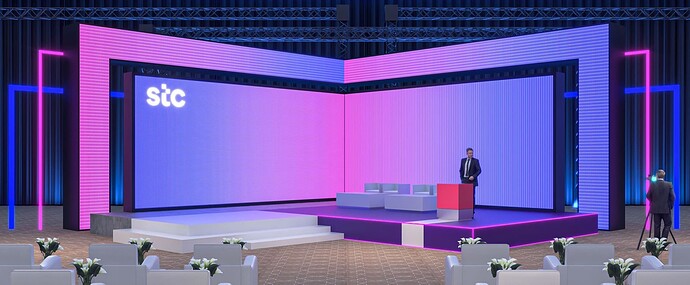RTLED will answer your questions in this article.
IPS Screens
**1. Color Accuracy and Consistency
- Pros: IPS screens are renowned for their excellent color accuracy and wide viewing angles. Colors remain consistent and true-to-life from various angles.
- Cons: They can be more expensive than other types of LCD screens.
**2. Viewing Angles
- Pros: IPS technology offers superior viewing angles compared to TN (Twisted Nematic) panels. This means that the display’s colors and brightness remain consistent even when viewed from the side.
- Cons: In bright environments, IPS screens may not perform as well due to potential glare and reflections.
**3. Response Time
- Pros: Newer IPS panels have improved response times, suitable for casual gaming and general use.
- Cons: Historically, IPS screens have slower response times compared to TN panels, which can affect fast-paced gaming.
LED Displays
**1. Brightness and Energy Efficiency
- Pros: LED displays are known for their high brightness and energy efficiency. They use less power compared to traditional LCDs with CCFL backlighting and can produce more vibrant images.
- Cons: Brightness levels can vary depending on the quality of the LED technology used.
**2. Contrast and Black Levels
- Pros: LED displays can achieve better contrast and darker blacks thanks to local dimming features, which enhance overall image quality.
- Cons: LED displays with poor local dimming can suffer from uneven lighting and halo effects.
**3. Thickness and Design
- Pros: LED displays are generally thinner and more sleek compared to older LCD technology, allowing for more modern and compact designs.
- Cons: The thinner profile can sometimes limit the placement of features and connectivity options.
Which is Better?
- For Color Accuracy and Viewing Angles: If color precision and wide viewing angles are critical for your work, such as graphic design or video editing, an IPS screen would be a better choice.
- For Brightness and Energy Efficiency: If you need a display that performs well in bright environments and is more energy-efficient, an LED display might be more suitable.
In summary, the choice between IPS and LED displays depends on your specific needs. IPS is ideal for color-critical tasks and wide viewing angles, while LED displays excel in brightness, energy efficiency, and sleek design.
If you want to learn more LED video screen, contact us now. and check this blog IPS vs. LED Display: Which Screen is Better.
